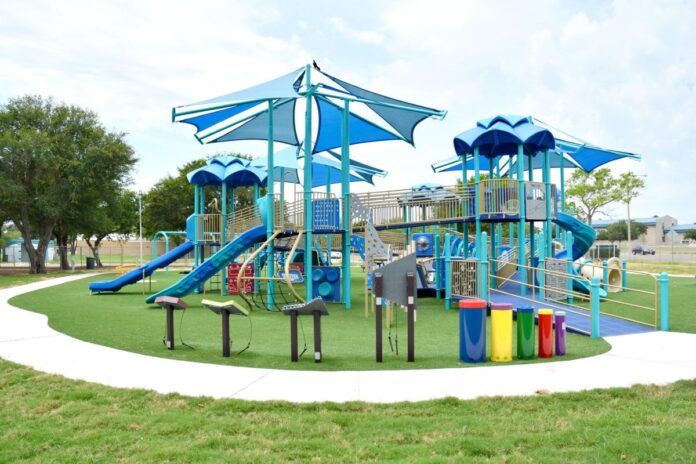HARLINGEN — The city has launched a project to develop an $8.5 million super park.
Last night, city commissioners authorized City Manager Dan Serna to negotiate an architectural contract for the $2.6 million first phase of a project to turn Lon C. Hill Park into a so-called destination park.
Commissioners requested Serna negotiate a contract with GMS Architects, a Brownsville-based firm, one of 12 architectural firms submitting proposals for the job.
Parks Director Javier Mendez said a committee made up of himself, Assistant City Manager Carlos Sanchez and engineer Martha Viada ranked GMS above the other firms as a result of criteria including experience.
“They have worked on several parks projects before,” Mendez told commissioners, adding the firm also developed the super park’s conceptual illustration.
Serna told commissioners he would work with GMS to negotiate the firm’s fee.
If negotiations fail to reach a reasonable fee, officials will consider the second-ranked firm, Half Associates in McAllen, Serna said.
Officials plan to earmark money from the Harlingen Community Improvement Board’s sales tax to fund the first phase of the project aimed at drawing tourism to town.
The super park’s first phase will help lay the foundation for the super park, whose five phases would include features such as an amphitheater, athletic courts, an adaptive field aimed at special needs children, a discovery center and a dog park.
The project’s fifth phase is expected to build a $1.2 million retractable roof over Harlingen Field.
Mayor Chris Boswell said the super park’s proposed features could “change” as the project develops.
The plan to develop a destination park ranks among the top priorities in the city’s new 10-year comprehensive plan.
For months, officials debated the project’s funding.
Since last year, officials downscaled the project, originally carrying a price tag of $12.9 million.
In May, Commissioner Michael Mezmar spoke out against borrowing money to build the super park.
Then two months later, commissioners scrapped plans to borrow money to fund the project.
In July, Commissioner Tudor Uhlhorn said he did not want to squeeze the Community Improvement Board’s budget, fueled by sales tax revenue earmarked to fund so-called quality of life projects including the $16.7 million convention center.
Now, the city plans to use cash and grants to build the park in five phases, stretching out the project for as long as eight years.





